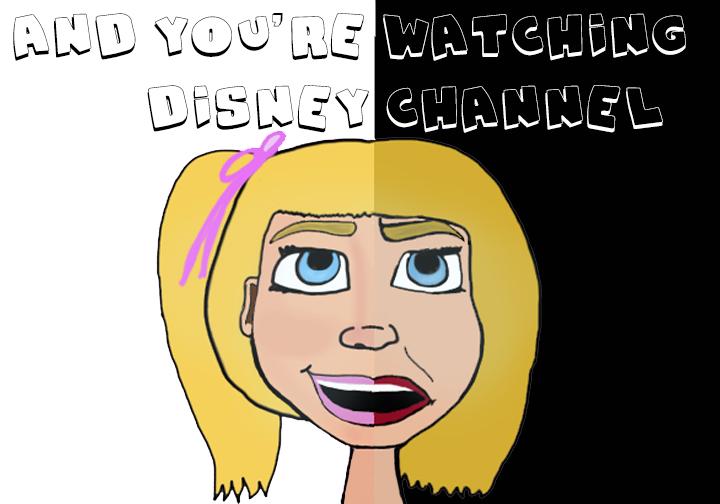For years, Disney has been the symbol of innocence, known for masterpieces that transport children to another world. One of Disney’s most popular creations is Disney Channel, which provides kids and tweens with their own entertainment separate from the “boring” programs their parents watch. However, there is a point where we reach the threshold of teenage life in which we can no longer be satisfied with Disney’s censored dialogue. Looking now on the shows that occupy the time slots on Disney channel, such as “Austin and Ally” and “Dog With a Blog,” it is easy to regard these shows as childish and lacking any value. However, this is perhaps not an effect of our aging minds, but rather Disney’s ultimate downfall in the television industry.
Disney Channel began in 1983 with the animated show “Good Morning, Mickey!” Later catering to tweens in the 1990s and early 2000s with shows like “Even Stevens,” “Lizzie McGuire,” “Kim Possible,” and “That’s So Raven,” ratings began to rise significantly. Disney Channel had found its niche.
What made these shows successful was not always a focus on quality humor; it was the authentic lives of American teenagers with a twist at times e.g. some had a secret spy identity or a psychic power. Even with these not-so-typical qualities, each episode was still able to morph a humorous story into a life lesson for troubled tweens. This era from the late 90s into the early 2000s seemed to have been the golden age of Disney Channel.
More recently, however, Disney has seemed to have fallen short of this title. While they have evolved significantly within the movie franchise, now including more tales of heroines who don’t have to rely on Prince Charming to save the day, the same cannot be said within their television shows.
Disney Channel has strayed away from the life values that made it successful. Instead, it has expanded its marketing platform with shows that prove to be very difficult to relate to. “Hannah Montana” is one of this kind and the famous teen living a double life became much more of a symbol than someone you would want to hang out with. The facade of being a normal teen does not last once one realizes that the general audience cannot relate to Miley trying to write a new hit-single as a teen-pop sensation.
The ability to connect with a character has also been increasingly lost in the ability to create original premises. Despite their unique plots, I find it hard to see how a young person can learn from a talking dog with a blog. Disney Channel has become much more interested in shows that are marketable, rather than those that could provide at least some type of value in a child’s life.
While the disenchantment with kid’s shows inevitably comes at a turning point within a teenager’s life, Disney Channel has failed to continue its previous authenticity in telling stories. It seems destined that the next generation will never get to know the old Disney.




























































